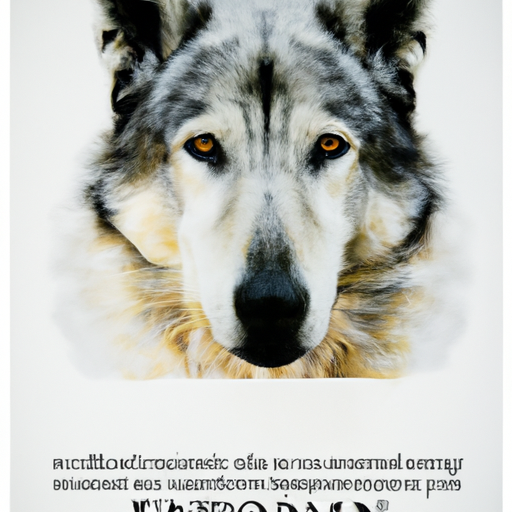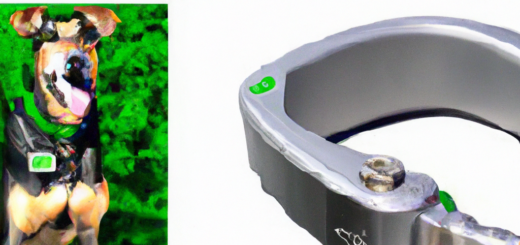From Wolf To Woof: The Intriguing Evolution Of Domesticated Dogs
Once upon a time, long long ago, there were wild wolves running around in the forests. But then, something magical happened! These wolves started to become friends with humans and over time, they turned into our furry companions that we call dogs. Can you imagine that? How did these wild wolves change into the lovable pets we know today? Join us on a fascinating journey to uncover the secrets of how dogs evolved from wild wolves to become our best pals!

This image is property of images.unsplash.com.
Evolutionary origins of domestic dogs
Genetic evidence of dog domestication
Dogs have been our loyal companions for thousands of years, but have you ever wondered how they became domesticated? Scientists have used genetic evidence to trace the origins of domestic dogs. They have found that dogs share a common ancestor with gray wolves, which are their closest living relatives. This means that dogs and wolves share a common genetic heritage.
The split between wolves and dogs
So, how did dogs and wolves become separate species? It all started tens of thousands of years ago when wolves and early humans began to interact. Some scientists believe that wolves were attracted to human settlements because of the presence of food scraps. Over time, these wolves became less fearful and started to rely on humans for food. This led to the split between wolves and dogs. Wolves remained wild and independent, while dogs became more dependent on humans for survival.
The process of domestication
The process of domestication took place over many generations. Humans selectively bred dogs with desirable traits, such as friendliness and obedience, while the less desirable traits were eliminated. This process allowed humans to shape the physical and behavioral characteristics of dogs. Over time, dogs evolved into the diverse breeds we see today.
Early interactions between humans and dogs
The role of dogs in hunting and providing security
In the early days of dog domestication, dogs played a vital role in our survival. They helped humans in various ways, such as hunting for food. Dogs were excellent hunters due to their keen senses and ability to track prey. They were also used for security purposes, alerting humans to potential threats and guarding their homes.
The development of a symbiotic relationship
As humans and dogs continued to live and work together, a unique bond developed between the two species. Dogs provided humans with valuable assistance, and in return, humans provided dogs with food and protection. This symbiotic relationship allowed both species to thrive and led to the development of a deep mutual understanding.
Ancient artwork depicting dogs
Ancient artwork provides us with glimpses into the early interactions between humans and dogs. Cave paintings and sculptures dating back thousands of years depict dogs in hunting scenes and as companions to humans. These artworks show that dogs have been an integral part of human society for a very long time.

This image is property of images.unsplash.com.
Breeds and variations of domestic dogs
The wide range of dog breeds
Have you ever noticed how there are so many different-looking dogs? Well, that’s because there are over 300 different dog breeds in the world today! Each breed has its own unique characteristics, such as size, coat type, and temperament. From tiny Chihuahuas to massive Saint Bernards, the wide range of dog breeds is a result of centuries of selective breeding.
Characteristics specific to certain breeds
Certain breeds of dogs have specific traits that make them well-suited for particular tasks. For example, Border Collies are known for their intelligence and herding abilities, while Labrador Retrievers make great guide dogs due to their friendly and gentle nature. By selectively breeding dogs for specific traits, humans have been able to create breeds that excel in various areas.
The impact of selective breeding
Selective breeding has not only resulted in the wide variety of dog breeds we have today, but it has also contributed to health problems in some breeds. Breeding for certain physical characteristics, such as short snouts or long backs, can lead to structural and health issues. It is important for breeders to prioritize the health and well-being of dogs when breeding for specific traits.
Roles and functions of domestic dogs
Working dogs and their important tasks
Many dogs have important jobs that they perform in our society. Some dogs work alongside police officers and search and rescue teams to locate missing persons or detect illegal substances. Others are trained to assist people with disabilities, such as guide dogs for the blind or service dogs for individuals with mobility issues. These working dogs are highly trained and make a significant impact on the lives of those they assist.
Therapy and assistance dogs
Therapy dogs are specially trained to provide comfort and emotional support to people in hospitals, nursing homes, and other care facilities. They bring joy and companionship to individuals who may be going through a difficult time. Assistance dogs, on the other hand, are trained to help individuals with physical or psychiatric disabilities by performing tasks such as opening doors or alerting to the onset of a medical condition.
Companion dogs for emotional support
Many of us have experienced the joy and comfort of having a dog as a companion. Dogs have a unique ability to provide unconditional love and emotional support. They can help reduce stress, anxiety, and feelings of loneliness. Owning a dog can improve our mental well-being and overall quality of life.

This image is property of images.unsplash.com.
The influence of domestication on dog behavior
Changes in social behavior
As dogs evolved from wolves, their social behavior also changed. Wolves are highly social animals that live and hunt together in packs, while dogs have become more adapted to living in human households. Dogs have developed a strong bond with humans and their behavior has adapted to fit within our social structures. They have become more dependent on us for food, guidance, and companionship.
Communication between humans and dogs
Dogs and humans have developed their own unique ways of communicating with each other. Dogs use a combination of vocalizations, body language, and facial expressions to convey their emotions and intentions. They also rely on humans to interpret their signals and respond accordingly. Likewise, humans use words, tone of voice, and body language to communicate with dogs. Understanding and respecting each other’s communication cues is essential for a strong human-dog bond.
The importance of training and socialization
Training and socialization play a crucial role in a dog’s behavior and well-being. Training helps dogs learn basic commands and proper behavior, making them better behaved and more enjoyable companions. Socialization exposes dogs to different people, animals, and environments, ensuring they grow up to be confident and well-adjusted. It is important for dog owners to invest time and effort in training and socializing their dogs from a young age.
The human-dog bond
The psychological benefits of owning a dog
Owning a dog has numerous psychological benefits for humans. Dogs provide companionship, which can alleviate feelings of loneliness and isolation. They also offer a sense of purpose and responsibility, as they rely on us for their care. Studies have shown that owning a dog can lower stress levels, decrease symptoms of depression and anxiety, and improve overall mental well-being.
The concept of dogs as family members
For many people, dogs are not just pets, but cherished members of their families. Dogs bring joy, love, and happiness into our homes, and their loyalty is unwavering. They provide comfort and emotional support during difficult times and celebrate with us during happy moments. The concept of dogs as family members is deeply ingrained in our society and has created lifelong bonds between humans and dogs.
The therapeutic effects of interacting with dogs
Interacting with dogs can have therapeutic effects on individuals of all ages. Playing with a dog or simply petting them can release oxytocin, a hormone associated with feelings of love and bonding. This can help reduce stress, lower blood pressure, and increase feelings of happiness. Dogs are often used in therapy settings to assist individuals with physical, emotional, or mental health challenges.

The impact of dogs on human society
Dogs in popular culture
Dogs have a significant presence in popular culture, appearing in books, movies, TV shows, and even advertisements. They are often portrayed as loyal companions, brave heroes, and beloved family pets. Famous fictional dogs, such as Lassie and Scooby-Doo, have captured the hearts of millions of people around the world. Dogs have become iconic symbols of loyalty, bravery, and unconditional love.
Dogs in history and mythology
Throughout history, dogs have played important roles in human societies. They were valued for their hunting abilities, their loyalty in warfare, and their companionship. In mythology, dogs are often depicted as guardians or guides. For example, in Greek mythology, the three-headed dog Cerberus guarded the gates of the underworld. Dogs have left their pawprints on human history and continue to be an integral part of our society.
Dogs as symbols of loyalty and companionship
One of the key reasons why dogs hold a special place in our hearts is their unwavering loyalty and companionship. Dogs are known for their unconditional love and devotion towards their human companions. They are always there for us, offering a listening ear, a wagging tail, and a warm snuggle. Dogs have become symbols of loyalty, trust, and friendship, reminding us of the importance of these values in our own lives.
The future of domestic dogs
Continued selective breeding and specialization
Selective breeding will continue to shape the future of domestic dogs. Breeders will focus on developing new breeds or refining existing ones to meet specific needs and preferences. This could lead to the creation of dogs with even more specialized abilities or unique physical characteristics. However, it is important for breeders to prioritize the health and well-being of dogs and avoid detrimental traits caused by excessive inbreeding.
Advances in genetic research
Advances in genetic research hold great promise for the future of domestic dogs. Scientists are studying the canine genome to better understand the genetic basis of various traits and diseases. This knowledge can help breeders make informed decisions and develop healthier, more resilient dog breeds. Additionally, genetic research may pave the way for targeted therapies and treatments for genetic disorders in dogs.
The ethical considerations of dog breeding
As we move forward, it is crucial to consider the ethical implications of dog breeding. The well-being of dogs should always be the top priority. Breeders should prioritize health, temperament, and overall quality of life when selecting breeding pairs. It is also important to educate the public about responsible dog ownership and the importance of choosing a breed that aligns with their lifestyle and resources.

Controversies surrounding dog breeding and ownership
The issue of overbreeding and health problems
One of the controversies surrounding dog breeding is the issue of overbreeding and the resultant health problems in certain breeds. Some dogs have been bred with exaggerated physical traits that can lead to respiratory problems, joint issues, and other health complications. It is essential for breeders and prospective owners to be aware of the potential health risks associated with certain breeds and take appropriate measures to ensure the well-being of dogs.
Legislation and regulations on dog ownership
In many countries, there are laws and regulations governing dog ownership. These laws aim to safeguard the well-being of dogs and protect public safety. They often include requirements for licensing, vaccination, leash laws, and restrictions on certain breeds deemed potentially dangerous. It is important for dog owners to be aware of and comply with these laws to ensure the well-being of their dogs and maintain harmonious relationships with their communities.
The problem of abandoned and stray dogs
Sadly, not all dogs have loving homes. The problem of abandoned and stray dogs is a persistent issue worldwide. This is often the result of irresponsible ownership, overbreeding, or societal challenges. Stray dogs face numerous hardships, including hunger, disease, and exposure to the elements. Animal welfare organizations and shelters play a crucial role in rescuing, rehabilitating, and finding new homes for abandoned and stray dogs. Community education and spaying/neutering programs are key to addressing this problem.
Scientific studies on dogs and their behaviors
Research on canine intelligence
Scientists have conducted extensive research to understand the intelligence of dogs. They have found that dogs are capable of understanding human cues, learning complex tasks, and exhibiting problem-solving abilities. Different breeds may excel in different types of intelligence, such as working intelligence, which involves learning and performing specific tasks, or social intelligence, which involves understanding and responding to human emotions.
Studies on dog emotions and empathy
Recent studies have shown that dogs are capable of experiencing a wide range of emotions, including joy, fear, and empathy. They can sense when their human companions are upset or distressed and often offer comfort and support. Dogs also have their own unique ways of expressing emotions, such as wagging their tails when happy or whimpering when scared. Understanding dog emotions is important for effective communication and building a strong bond.
The significance of dog research for understanding human behavior
Research on dogs not only helps us better understand their behavior but also provides valuable insights into human behavior. Dogs are often used as models for studying various human conditions, such as autism, dementia, and post-traumatic stress disorder (PTSD). Their ability to form strong social bonds, show empathy, and respond to human cues makes them ideal subjects for studying the human-animal bond and its impact on our lives.
In conclusion, the evolution of domestic dogs from their wolf ancestors is a fascinating journey. Through genetic evidence and early interactions with humans, dogs became our loyal companions and integral parts of our lives. The diverse breeds and variations of domestic dogs we see today are a result of selective breeding. Dogs serve myriad roles and functions, from working and therapy dogs to beloved companions. The bond between humans and dogs is a special one, with numerous psychological and therapeutic benefits. Dogs have left their mark on human society, appearing in popular culture, history, and mythology. The future of domestic dogs holds potential for further specialization and advancements in genetic research, while ethical considerations and responsible ownership remain paramount. Dog breeding and ownership come with controversies, including overbreeding and the problem of abandoned dogs, which need to be addressed. Scientific studies on dogs’ behavior, intelligence, and emotions have provided insights into the human-animal bond and our understanding of ourselves. From wolf to woof, dogs have certainly left pawprints on our hearts and society.









